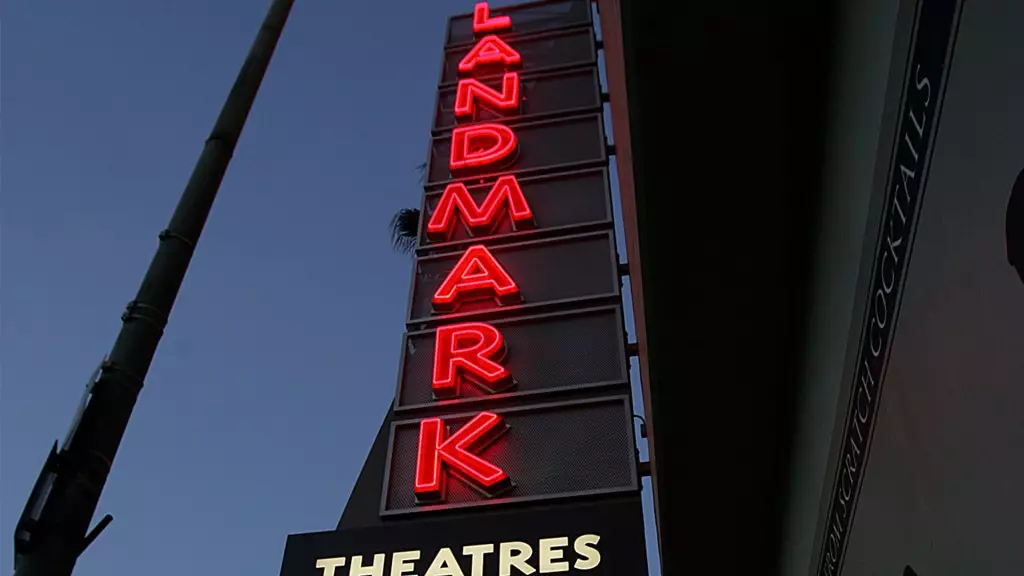Movie theaters have always been a cultural cornerstone, but over the past few years, the rise of streaming services and the impact of the COVID-19 pandemic have turned the industry on its head. Landmark Theatres, a once-stalwart name in independent cinema, seems to be taking significant steps to adapt and survive the evolving landscape. In a commendable move that aims to rejuvenate its brand, Landmark is embarking on extensive renovations at key locations: Bethesda Row, Lagoon, and Kendall Square. This redevelopment effort not only signifies a return to form but also a reimagined approach to the moviegoing experience under the leadership of President Kevin Holloway, who has stepped up as CEO.
The Importance of Modern Upgrade
The essence of a successful theater in today’s market lies in its ability to offer an upgraded, holistic experience that blends comfort and technology. Landmark seems to recognize this pressing need, particularly as younger audiences are lured away by the convenience of home viewing. Upgrading their theaters to include luxury recliner seating, enhanced sound technology, and expanded concession options is a direct response to these shifting dynamics. Holloway’s acknowledgment of the brand’s heritage, combined with a fresh, modern design ethos, will likely be crucial in appealing to both dedicated cinephiles and casual moviegoers alike.
The scope of the renovations is impressive, with each location slated to receive unique enhancements. A notable transformation will be underway at Bethesda Row, where the addition of a new LED marquee and a historically-inspired lobby aims to create a welcoming ambiance that pays homage to both the historical significance of the venue and the modern sensibilities of its audience. Similarly, Lagoon will undergo a complete makeover that includes hand-painted murals—a nod to artistic tradition—paired with contemporary amenities like a full-service bar to engage patrons in a social experience.
Strategic Partnerships and Financial Maneuvering
One of the most significant aspects of this remodeling initiative is its financing. While specific details remain murky, it’s implied that partnerships with landlords will assist in covering the costs. This collaborative approach could be a strategic move that alleviates financial burdens on Landmark while ensuring project feasibility. Given the tough financial landscape the chain faced after the pandemic, with the closure of 32 locations and a legal battle over a substantial loan, these alliances could be vital in steering the company toward long-term stability.
Holloway’s optimistic perspective is refreshing; he articulates a vision that balances historical reverence with a forward-thinking outlook. His previous experience in various celebrated cinema brands gives him a nuanced understanding of what modern audiences seek. The challenges that have faced Landmark, culminating in its rebranding efforts, might yield benefits that extend beyond aesthetic upgrades to include an enhanced guest experience and increased loyalty.
The Road Ahead: Challenges and Opportunities
However, the road ahead is not devoid of obstacles. Landmark must navigate a legal quagmire involving their owner, Charles Cohen, and creditor Fortress, who is pursuing a substantial loan guarantee. The financial and reputational implications of this legal battle could overshadow any momentum gained from the renovations, potentially introducing volatility into the brand’s revival efforts. The balance between addressing ongoing financial concerns while simultaneously investing in the future is an intricate dance that Landmark must execute with precision.
There remains a palpable excitement about the newly envisioned spaces that Landmark is creating. The focus on enhancing comedy, drama, and independent films aligned with a vibrant atmosphere is essential for retaining its identity as a cultural institution. Additions like large format auditoriums for screenings and live events at Kendall Square will cater to a diverse array of artistic expressions, fostering community engagement and contributing to the fabric of local culture.
While Landmark Theatres has stumbled through financial strife and shifting industry trends, the bold steps taken towards modernizing their theaters signal an important commitment to revitalize the communal essence of cinema. Their return to form, guided by seasoned leadership and anchored in strong community roots, offers a hopeful glimpse into the potential future of moviegoing. Ultimately, these ambitious changes could set a precedent for theaters nationwide looking to reclaim their place in an ever-evolving entertainment landscape.


Leave a Reply